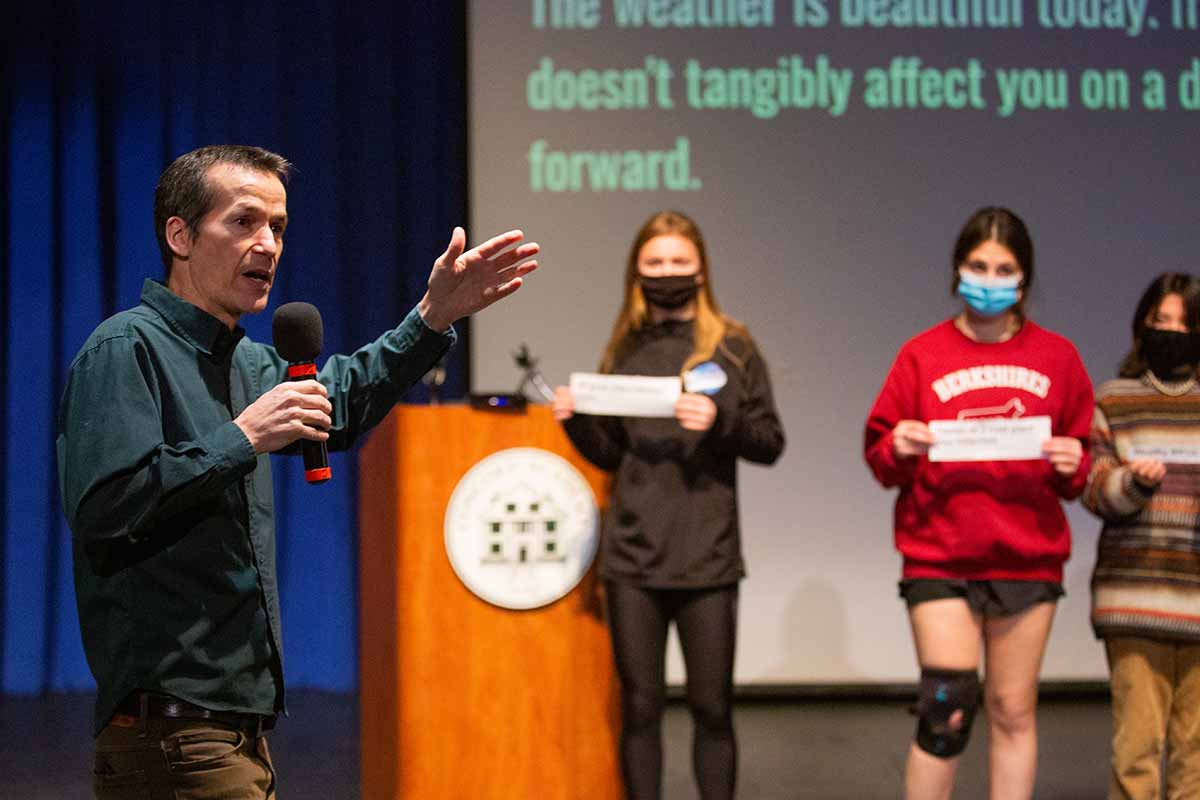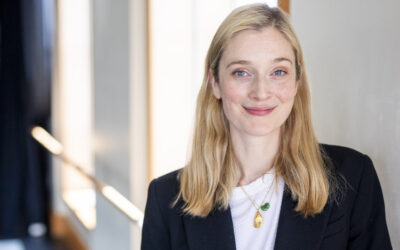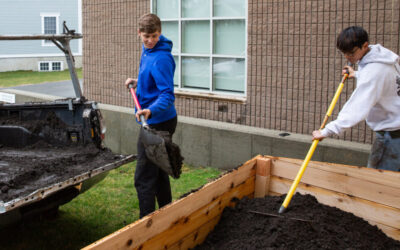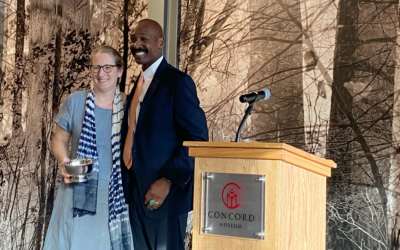
Gretchen Roorbach, CA science teacher and organizer of the Environmental Symposium, introduced the third and final speaker in the lecture series as one of her environmental role models. Her colleague Ben Stumpf ’88 has been teaching computer science, film, and graphic design at Concord Academy for nearly 20 years and has been involved with the climate movement for almost as long.
Throughout his talk, Stumpf encouraged audience members to consider their strengths and how these skills can be applied to the climate justice movement. “My main point is that there are a lot of ways to get involved,” Stumpf said at the start of the lecture. He pointed to the ways he has used his own skills in graphic design and documentary filmmaking skills to support organizations fighting for change. He has worked with local and national organizations including Alternatives for Community & Environment, the Transition Network, 350 Mass, Better Future Project, the divestment movement, Concord on Tap, Concord Climate Action Network, and the Sunrise Movement.
Stumpf went on to emphasize the intersection of racial justice and climate justice. Though many people refer to climate change as the “great equalizer,” impacting all of humanity in the same way, Stumpf said that this is a myth. He explained that those living in the Global South are already dealing with severe impacts of climate change today.
To further demonstrate how climate change impacts people differently, Stumpf performed what he called a “climate justice simulation.” Fourteen student volunteers stood in a line on the P.A.C. stage with pieces of paper describing their role in society. Some roles included a banker, a middle class individual with four children, and a fast food worker. Throughout the simulation, Stumpf presented a series of climate change scenarios. Depending on their role, students would either step forward or remain in place. One scenario involved an approaching hurricane. If their person had the ability to relocate, Stumpf asked those students to step forward. Another scenario involved a food shortage due to storms, fires, floods, and heat waves and a subsequent spike in food prices. Those whose role allowed them to afford pricier food stepped forward.
By the end of the scenario, some students were far in front of the stage in the aisles of the P.A.C. while others were in the place they had started. At the back of the stage stood students with the roles of an undocumented refugee and an Indigenous person living on a reservation. In the front were a luxury realtor and the owner of a coal plant. Stumpf used this visual activity to further highlight how climate change impacts marginalized individuals in society more severely.
He also discussed the impact of COP26, the 2021 United Nations Climate Change Conference. At the conference, there was discussion about ending coal plants, which Stumpf noted as a success. However, a last minute-change to the wording of the Glasgow Climate Pact upset activists: Instead of phasing out coal, the pact agreed to phase down use of coal. “As much as you can try to pass these laws and set these goals, a lot of climate activists feel like we don’t actually do what we say we’re doing,” Stumpf said. “We continue to invest in fossil fuels. We continue to put pipelines through the ground. Activists are frustrated about this.” During COP26, protests broke out due to this frustration and anger.
“Whatever your best thing is, bring that to the movement,” Stumpf advised students at the end of the lecture. He suggested writing an op-ed to the local newspaper about divesting in fossil fuels for students who love to write, or getting involved in guerilla theater and performing about social justice for students who act. Stumpf emphasized that whatever your skills are, there is a way to apply them to the climate justice movement.
Throughout his talk, Stumpf highlighted different voices through video. Here are the clips he showed during his presentation:
Climate Justice is Social Justice
Why The Global South Is Fighting For Climate Justice
Vanessa Nakate Wants Climate Justice for Africa
“Stop This Madness”: Rev. Lennox Yearwood Calls to Divest from Fossil Fuels Amid Climate Disasters
COP26 Had Big Ambitions–Here’s Why It Fell Disastrously Short
World Leaders Agree New Climate Deal at COP26 after ‘Disappointing’ Last-Minute Change
Scores Of Protesters Worldwide Maintain Pressure On Leaders at COP26
Stumpf recommended the following articles for further reading:
There is No Climate Justice Without Racial Justice
Why the Climate Movement Is Finally Embracing the Fight Against Environmental Racism
It’s Time to Stop Buying Into Our Own Destruction
United Nations General Assembly: Global Practices to Ensure a Safe Climate


